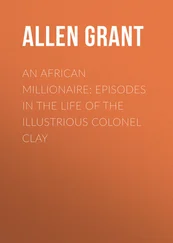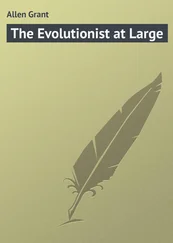Grant Allen - What's Bred in the Bone
Здесь есть возможность читать онлайн «Grant Allen - What's Bred in the Bone» — ознакомительный отрывок электронной книги совершенно бесплатно, а после прочтения отрывка купить полную версию. В некоторых случаях можно слушать аудио, скачать через торрент в формате fb2 и присутствует краткое содержание. Издательство: Иностранный паблик, Жанр: foreign_prose, literature_19, Классический детектив, foreign_detective, foreign_antique, на английском языке. Описание произведения, (предисловие) а так же отзывы посетителей доступны на портале библиотеки ЛибКат.
- Название:What's Bred in the Bone
- Автор:
- Издательство:Иностранный паблик
- Жанр:
- Год:неизвестен
- ISBN:нет данных
- Рейтинг книги:4 / 5. Голосов: 1
-
Избранное:Добавить в избранное
- Отзывы:
-
Ваша оценка:
- 80
- 1
- 2
- 3
- 4
- 5
What's Bred in the Bone: краткое содержание, описание и аннотация
Предлагаем к чтению аннотацию, описание, краткое содержание или предисловие (зависит от того, что написал сам автор книги «What's Bred in the Bone»). Если вы не нашли необходимую информацию о книге — напишите в комментариях, мы постараемся отыскать её.
What's Bred in the Bone — читать онлайн ознакомительный отрывок
Ниже представлен текст книги, разбитый по страницам. Система сохранения места последней прочитанной страницы, позволяет с удобством читать онлайн бесплатно книгу «What's Bred in the Bone», без необходимости каждый раз заново искать на чём Вы остановились. Поставьте закладку, и сможете в любой момент перейти на страницу, на которой закончили чтение.
Интервал:
Закладка:
So there he was left with the two boys on his hands, but free, if he liked, to marry Lady Emily. No reason on earth, of course, why he shouldn't marry her now. So, naturally, he married her—after a fortnight's interval. The Admiral was all smiles and paternal blessings at this sudden change of front on his son's part. Why the dickens Harry hadn't wanted to marry the girl before, to be sure he couldn't conceive; hankering after some missy in the country, he supposed, that silly rot about what they call love, no doubt; but now that Harry had come to his senses at last, and taken the Earl's lass, why, the Admiral was indulgence and munificence itself; the young people should have an ample allowance, and my daughter-in-law, Lady Emily, should live on the best that Tilgate and Chetwood could possibly afford her.
What would you have? the Colonel asked piteously, in the dead of night, of his own conscience. How else could he have acted? He said nothing. That was all, mind you, he declared to himself more than once in his own soul. He told no lies. He made no complications. While the Admiral lived, he brought up Lucy's sons, quite privately, at Plymouth. And as soon as ever the Admiral died, he really and truly meant to acknowledge them.
But fathers never die—in entailed estates. The Admiral lived so long—quite, quite too long for Guy and Cyril. Granville was born, and grew to be a big boy, and was treated by everybody as the heir to Tilgate. And now the Colonel's difficulties gathered thicker around him. At last, in the fulness of time, the Admiral died, and slept with his fathers, whose Elizabethan ruff's were the honour and glory of the chancel at Tilgate; and then the day of reckoning was fairly upon him. How well he remembered that awful hour. He couldn't, he couldn't. He knew it was his duty to acknowledge his rightful sons and heirs, but he hadn't the courage. Things had all altered so much.
Meanwhile, Guy and Cyril had gone to Charterhouse as nobody's wards, and been brought up in the expectation of earning their own livelihood, so no wrong, he said casuistically, had been done to THEM, at any rate. And Granville had been brought up as the heir of Tilgate. Lady Emily naturally expected her son to succeed his father. He had gone too far to turn back at last. And yet—
And yet, in his own heart, disguise it as he might, he knew he was keeping his lawful sons out of their own in the end, and it was his duty to acknowledge them as the heirs of Tilgate.
CHAPTER XI.
A FAMILY JAR
Hour after hour the unhappy man lay still as death on his bed and reasoned in vain with his accusing conscience. To be sure, he said to himself, no man was bound by the law of England to name his heir. It is for the eldest son himself to come forward and make his claim. If Guy and Cyril could prove their title to the Tilgate estates when he himself was dead, that was their private business. He wasn't bound to do anything special to make the way easy for them beforehand.
But still, when he saw them, his heart arose and smote him. His very class prejudices fought hard on their behalf. These men were gentlemen, the eldest sons of a Kelmscott of Tilgate—true Kelmscotts to the core—handsome, courtly, erect of bearing. Guy was the very image of the Kelmscott of Tilgate Park who bled for King Charles at Marston Moor; Cyril had the exact mien of Sir Rupert Kelmscott, Knight of Chetwood, the ablest of their race, whose portrait, by Kneller, hung in the great hall between his father; the Admiral, and his uncle, Sir Frederick. They had all the qualities the Colonel himself associated with the Kelmscott name. They were strong, brave, vigorous, able to hold their own against all comers. To leave them out in the cold was not only wrong—it was also, he felt in his heart of hearts, a treason to his order.
At last, after long watching, he fell asleep. But he slept uneasily. When he woke, it was with a start. He found himself murmuring to himself in his troubled sleep, "Break the entail, and settle a sum on the two that will quiet them."
It was the only way left to prevent public scandal, and to save Lady Emily and his son Granville from a painful disclosure: while, at the same time, it would to some extent satisfy the claims of his conscience.
Compromise, compromise; there's nothing like compromise. Colonel Kelmscott had always had by temperament a truly British love of compromise.
To carry out his plan, indeed, it would be necessary to break the entail twice; once formally, and once again really. He must begin by getting Granville's consent to the proposed arrangement, so as to raise ready money with which to bribe the young men; and as soon as Granville's consent was obtained, he must put it plainly to Guy and Cyril, as an anonymous benefactor, that if they would consent to accept a fixed sum in lieu of all contingencies, then the secret of their birth would be revealed to them at last, and they would be asked to break the entail on the estates as eldest sons of a gentleman of property.
It was a hard bargain; a very hard bargain; but then these boys would jump at it, no doubt; expecting nothing as they did, they'd certainly jump at it. It's a great point, you see, to come in suddenly, when you expect nothing, to a nice lump sum of five or six thousand!
So much so, indeed, that the real difficulty, he thought, would rather lie in approaching Granville.
After breakfast that morning, however, he tapped his son on the shoulder as he was leaving the table, and said to him, in his distinctly business tone, "Granville, will you step with me into the library for ten minutes' talk? There's a small matter of the estate I desire to discuss with you."
Granville looked back at him with a curiously amused air.
"Why, yes," he said shortly. "It's a very odd coincidence. But do you know, I was going this morning myself to ask for a chance of ten minutes' talk with you."
He rose, and followed his father into the oak-panelled library. The Colonel sat down on one of the uncomfortable library chairs, especially designed, with their knobs and excrescences, to prevent the bare possibility of serious study. Granville took a seat opposite him, across the formal oak table. Colonel Kelmscott paused; and cleared his throat nervously. Then, with military promptitude, he darted straight into the very thick of the fray.
"Granville," he said abruptly, "I want to speak with you about a rather big affair. The fact of it is, I'm going to break the entail. I want to raise some money."
The son gave a little start of surprise and amusement. "Why, this is very odd," he exclaimed once more, in an astonished tone. "That's just the precise thing I wanted to talk about with you."
Colonel Kelmscott eyed him with an answering start.
"Not debts!" he said slowly. "My boy, my boy, this is bad. Not debts surely, Granville; I never suspected it."
"Oh, dear no," Granville answered frankly. "No debts, you may be sure. But I wanted to feel myself on a satisfactory basis—as to income and so forth: and I was prepared to pay for my freedom well. To tell you the truth outright, I want to marry."
Colonel Kelmscott eyed him close with a very puzzled look. "Not Elma Clifford, my boy," he said again quickly. "For of course, if it is her, Granville, I need hardly say—"
The young man cut him short with a hasty little laugh. "Elma Clifford," he repeated, with some scorn in his musical voice, "Oh, dear no, not HER. If it had been her you may be sure there'd be no reason of any sort for breaking the entail. But the fact is this: I dislike allowances one way or the other. I want to feel once for all I'm my own master. I want to marry—not this girl or that, but whom ever I will. I don't care to come to you with my hat in my hand, asking how much you'll be kind enough to allow me if I venture to take Miss So-and-so or Miss What-you-may-call-it. And as I know you want money yourself for this new wing you're thinking of, why, I'm prepared to break the entail at once, and sell whatever building land you think right and proper."
Читать дальшеИнтервал:
Закладка:
Похожие книги на «What's Bred in the Bone»
Представляем Вашему вниманию похожие книги на «What's Bred in the Bone» списком для выбора. Мы отобрали схожую по названию и смыслу литературу в надежде предоставить читателям больше вариантов отыскать новые, интересные, ещё непрочитанные произведения.
Обсуждение, отзывы о книге «What's Bred in the Bone» и просто собственные мнения читателей. Оставьте ваши комментарии, напишите, что Вы думаете о произведении, его смысле или главных героях. Укажите что конкретно понравилось, а что нет, и почему Вы так считаете.












